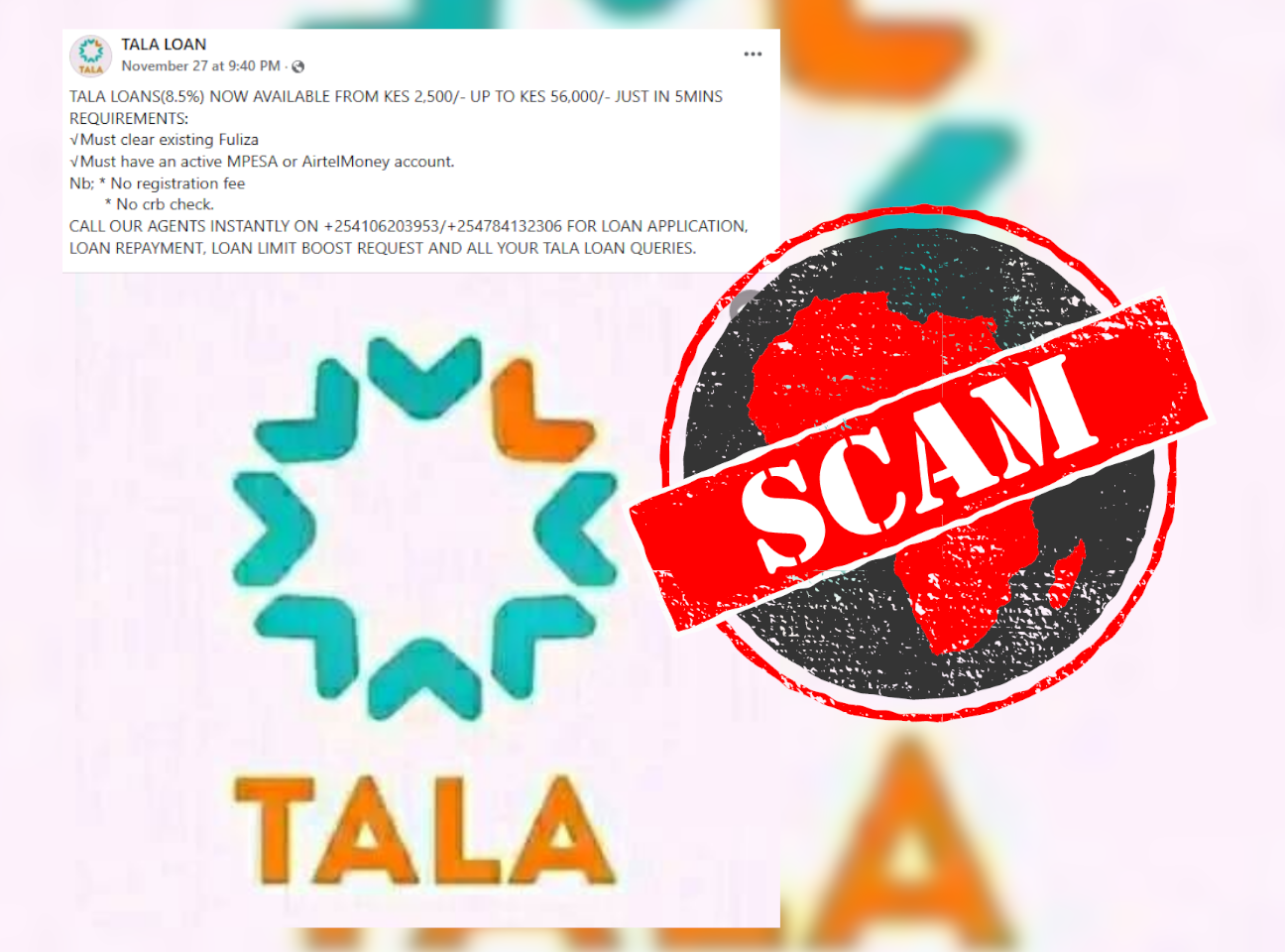IN SHORT: Mobile money loan apps have a ready market in Kenya, but this Facebook page does not belong to Tala and offers from it should be ignored.
The Facebook page Tala Loan appears to represent a popular mobile loan app operating in Kenya.
In a post from 27 November 2022, the page invites users to apply for quick loans. It reads: “Tala Loans (8.5%) now available from Kes 2,500/- up to Kes 56,000/- Just in 5mins.”
It gives a list of requirements, including that the applicant not have existing mobile money loans, and says it does not charge a registration fee or conduct a credit check. Two phone numbers to its “agents” are also given.
Is this all to be trusted?

Beware of disclosing personal info online
Tala operates in Kenya, India, Mexico and the Philippines. The legitimate Tala Facebook page is verified and was created on 12 June 2014. It has more than 769,464 followers.
To access loans, a customer is required to download its app and then complete an application process. Based on data from the applicant’s smartphone, a loan limit is determined. If approved, the loan is dispensed through mobile money service.
Defaulting or non-payment can result in being reported to the credit bureaus and getting blacklisted on Tala.
By contrast, the Tala Loan page was created on 3 October 2022 and has a paltry 34 followers.
There is no indication that it is connected to Tala and the application process described is quite different. Offers from it should be ignored.
For more information about how to avoid being scammed on Facebook, read our guide.
Republish our content for free
For publishers: what to do if your post is rated false
A fact-checker has rated your Facebook or Instagram post as “false”, “altered”, “partly false” or “missing context”. This could have serious consequences. What do you do?
Click on our guide for the steps you should follow.
Publishers guideAfrica Check teams up with Facebook
Africa Check is a partner in Meta's third-party fact-checking programme to help stop the spread of false information on social media.
The content we rate as “false” will be downgraded on Facebook and Instagram. This means fewer people will see it.
You can also help identify false information on Facebook. This guide explains how.




Add new comment